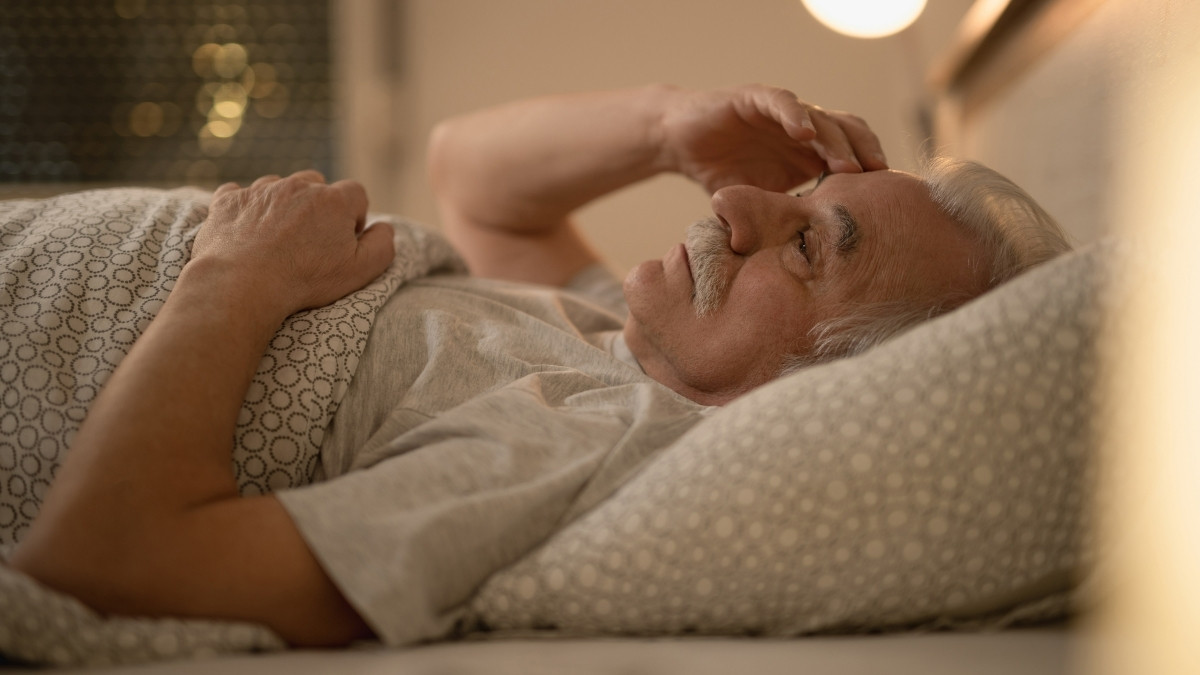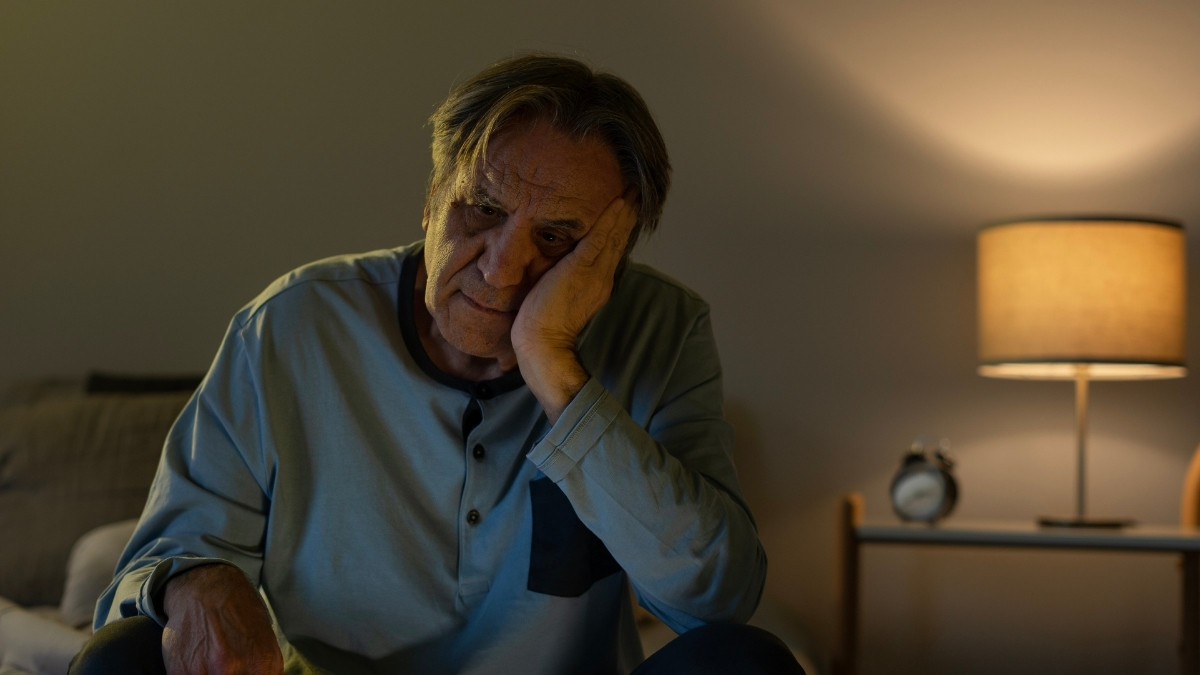Sleep or Suffer: The Midnight Habit Quietly Destroying Senior Mental Health

Ever notice how one sleepless night leaves you foggy and irritable? Now imagine that exhaustion stretching into weeks—this is the hidden reality for millions of seniors.
A dangerous midnight habit is eroding the mental health of older adults, and most don’t even realize it. Poor sleep isn’t just about fatigue—it’s accelerating memory loss, fueling anxiety, and deepening isolation. Yet few connect these struggles to after-dark routines.
From screen time to late-night snacks, seemingly harmless choices are silently chipping away at cognitive health. The truth? Sleep isn’t optional for aging brains—it’s survival. Let’s uncover the surprising ways nighttime habits are sabotaging senior minds—and how to fight back before it’s too late.
1. The “Midnight Brain Fog” Phenomenon: How Late-Night Wakefulness Accelerates Cognitive Decline
Sleep isn’t just rest—it’s when the brain cleans house. For seniors, staying up late disrupts memory consolidation, leaving mental clutter behind. Studies show fragmented sleep increases beta-amyloid buildup, a key marker of Alzheimer’s.
Without deep sleep, the brain struggles to store new information and filter toxins. Over time, this midnight habit doesn’t just cause forgetfulness—it speeds up cognitive decline. Prioritizing uninterrupted sleep could be one of the strongest defenses against dementia.
When seniors repeatedly delay sleep, the brain’s natural repair cycle slows down, allowing toxins and mental clutter to accumulate. This disruption weakens neural pathways responsible for clarity and decision-making.

Over time, the habit accelerates age-related memory loss and increases vulnerability to Alzheimer’s. Consistent deep sleep is one of the most powerful ways to protect long-term brain function.
2. The Cortisol Trap: Why Seniors Who Stay Up Late Face Higher Anxiety & Depression Risks
Nighttime wakefulness tricks the body into stress mode. Cortisol, the stress hormone, should drop at night, but late-night alertness keeps it elevated. For older adults, this imbalance fuels anxiety and depressive symptoms.

The brain needs darkness to reset emotionally. When seniors habitually lose sleep, they enter a cycle of heightened stress and low mood. Fixing sleep timing may be more effective than therapy or medication for some age-related mood disorders.
Staying awake late keeps the body stuck in a stress response, making emotional balance harder to maintain. High nighttime cortisol turns minor worries into overwhelming concerns, draining mental resilience.

This hormonal imbalance contributes to persistent mood swings, irritability, and anxiety in seniors. Restoring a proper sleep schedule is key to bringing cortisol back to healthy nighttime levels.
3. The Silent Sabotage: How Nighttime Screen Time Rewires the Aging Brain
Glowing screens after dark are more harmful than most realize. Blue light suppresses melatonin, the hormone that regulates sleep, and seniors already produce less of it. This double blow disrupts circadian rhythms, worsening neurodegeneration.
Research suggests prolonged screen exposure at night may shrink gray matter faster. Turning off devices two hours before bed could slow brain aging and improve mental sharpness.
The aging brain is already sensitive to light changes, and nighttime blue light adds extra strain on its internal clock. When sleep is delayed, the brain misses vital repair cycles that support memory and focus.

Prolonged screen exposure leads to slower thinking, reduced attention, and heavier morning fatigue. A 90–120 minute screen-free window before bed gives the brain time to reset naturally.
4. The Midnight Snack Dilemma: How Late-Night Eating Fuels Brain Inflammation
Digestion should wind down at night, not rev up. Late meals confuse the body’s internal clock, raising blood sugar and inflammation—both linked to Alzheimer’s. Poor sleep quality from indigestion also hampers brain detoxification.

Seniors who snack after 9 PM often report grogginess and memory lapses. Aligning meals with daylight hours supports better sleep and a healthier brain.
Late-night eating forces the body to stay metabolically active when it should be preparing for deep sleep, disrupting hormonal balance and brain recovery. This nighttime digestive alertness raises inflammation markers that are strongly linked to cognitive decline.

Seniors may also wake frequently due to spikes and crashes in blood sugar caused by late snacking. Keeping meals earlier in the evening helps stabilize the brain’s nighttime repair cycle and improves overall mental clarity.
5. The Loneliness Loop: How Insomnia in Seniors Deepens Social Isolation
Tossing and turning at night does more than leave seniors tired—it makes them withdraw. Exhaustion kills motivation for socializing, creating a dangerous cycle. The less they engage, the lonelier they feel, further disrupting sleep. Research shows sleep-deprived older adults are 50% more likely to isolate themselves.
Human connection regulates mood and stress, but chronic insomnia steals the energy for it. Breaking this loop starts with fixing sleep—conversations and community follow naturally.
When poor sleep drains energy, social interactions feel like overwhelming tasks rather than sources of comfort. The isolation that follows amplifies negative emotions, making it even harder for seniors to fall asleep the next night.

This repeated cycle gradually weakens emotional resilience and deepens feelings of disconnection. Re-establishing quality sleep often sparks the motivation needed to reconnect and rebuild meaningful social routines.
6. The Medication Mirage: Why Sleeping Pills Can Make the Problem Worse
Pills promise rest but often steal it long-term. Sedatives suppress deep sleep stages, leaving the brain under-rested despite hours unconscious. Seniors on sleep aids frequently report next-day grogginess and memory slips

. Worse, dependency weakens the body’s natural sleep drive. Over time, the brain forgets how to sleep without chemical help. Non-drug solutions—like light therapy or mindfulness—offer safer, more sustainable relief.
Many seniors turn to sleeping pills for quick relief, but these medications rarely restore the natural sleep architecture required for brain rejuvenation. Over time, sedatives can dull mental sharpness and slow reaction times, increasing risks for confusion and falls.

Dependence on these drugs makes it even harder for the body to regulate sleep naturally. Long-term solutions like routine bedtime habits and calming wind-down practices are far more protective for aging brains.
7. The Circadian Rhythm Rebellion: How Aging Disrupts the Body’s Natural Sleep Clock
Aging bodies fight their own internal clocks. Weakening light sensitivity and shifting hormones make seniors drowsy too early or wide awake at 3 AM.

This mismatch fuels insomnia and daytime fatigue. Strategic daylight exposure, consistent meal times, and reduced evening caffeine can retrain the brain’s sleep signals. Small adjustments sync biology with modern life, turning restless nights into reliable rest.
As the body’s internal clock weakens with age, even slight inconsistencies in daily habits can trigger wide sleep fluctuations. This circadian disruption reduces sleep depth and leaves seniors feeling tired regardless of how long they were in bed.

Strengthening daytime cues—like morning sunlight and regular activity—helps reset these internal rhythms. With consistency, the brain relearns when to power down, restoring both nighttime rest and daytime alertness.
(Additional Tips)
- Dim lights by 8 PM – Mimicking sunset cues your brain to wind down naturally.
- Swap late news for soft music – Reducing stimulating content prevents cortisol spikes before bed.
- Try a 10-minute leg stretch – Gentle movement relieves restless legs without overstimulation.
- Hydrate earlier – Cut fluids 2 hours before bed to avoid disruptive bathroom trips.
- Wear amber-tinted glasses at night – Blocks sleep-wrecking blue light from lamps and screens.
- Reheat your dinner by 7 PM – Late digestion raises body temperature, sabotaging deep sleep.
- Open curtains at dawn – Morning sunlight resets your circadian clock for better sleep that night.
At the Last,
Sleep isn’t a luxury—it’s the glue holding a senior’s mental health together. Those restless midnight hours do more than drain energy; they quietly chip away at memory, mood, and resilience. But the good news?
Small, consistent changes can rebuild broken sleep patterns before it’s too late. From dimming lights to ditching late snacks, every tweak matters. For seniors, protecting sleep isn’t just about rest—it’s about preserving independence, clarity, and joy. The choice is simple: prioritize sleep now or pay the price later.






